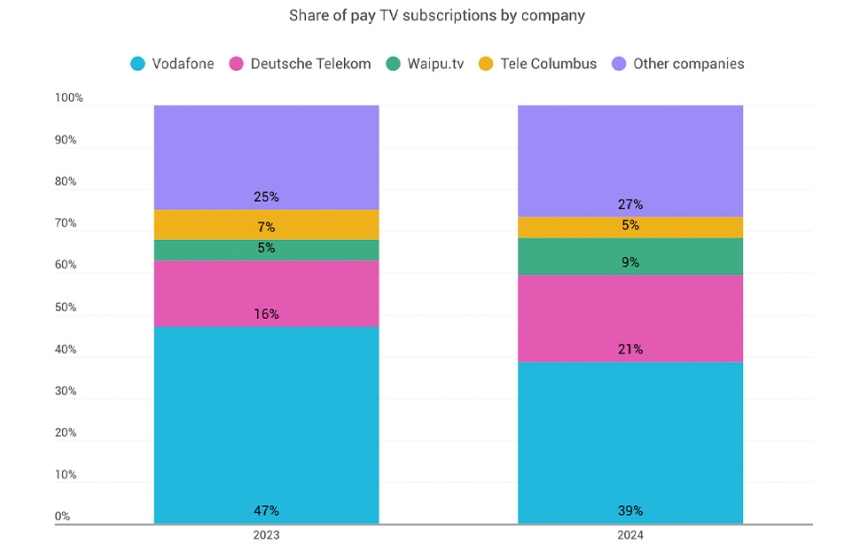Research from Ampere Analysis has found that a recent change in the German law has led to traditional cable TV providers losing up to 40 percent of their Pay TV subscribers.
Since the 1980s, A portion of the Telecommunications Act in Germany known as the additional cost privilege or "Nebenskostenprivilag" has allowed landlords and housing associations to bill cable TV fees to tenants as part of their rent. The law had been in place since the 1980s, but was officially eliminated in July of 2024.
The results have been fairly devastating for traditional cable TV providers. with Vodafone experiencing a 30% year-over-year drop in its pay TV subscriber base and Tele Columbus facing a 40& YoY drop.
The change has been a boon for IPTV providers Deutsche Telekom and Waipu.tv, with the latter seeing a +48% YoY growth in Q3 2024. And price seems to have been the driving force behind the shift, with 24% of consumers in Q3 2024 citing price as their top priority.
One interesting side effect of the regulatory change is that the combined growth of these operators only accounted for about one-fifth of the subscribers lost during this period due to the regulatory shift, with the remaining consumers yet to replace their cancelled subscription.
Ampere's Media Consumer survey seems to point to the curious fact that while there was a wave of consumers changing pay television services in Q3 2024, the overall number of subscribers in Germany remained stable. Which suggests that the consumers who haven't replaced their cancelled subscription were previously inactive users.
Rather than these consumers cutting the cord in favour of SVoD services, however, Ampere’s Media Consumer survey suggests they are simply choosing not to replace a service they never used to begin with. The Q3 2024 Consumer wave showed the number of consumers in Germany claiming to take a pay TV subscription in Q3 2024 remained stable, suggesting that the majority of lost subscribers were inactive users.

